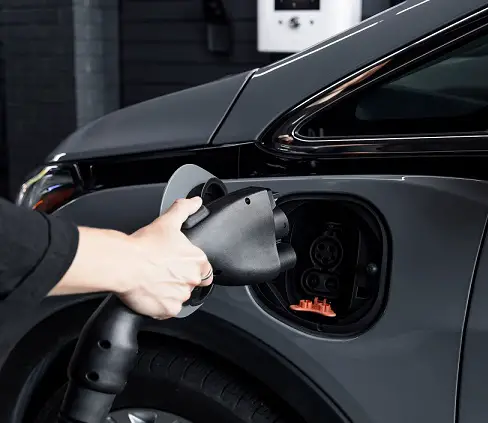In a speech Wednesday, British Prime Minister Rishi Sunak announced that the UK will delay its planned ban on the sales of new gasoline and diesel vehicles, moving the date such a ban would take effect from 2030 to 2035.
Prime Minister Sunak blasted previous administrations for looking more to produce “grabbing headlines” by issuing ambitious plans to cut carbon emissions over extremely short time periods, using measures which were badly thought-out, and put into action without any proper debate. Originally, the plan envisioned lowering carbon emissions by prohibiting the sale of new combustion-engine cars which run on fossil fuels, beginning in 2030.
The Prime Minister said, “We’re going to ease the transition to electric vehicles. You’ll still be able to buy petrol and diesel cars and vans until 2035. Even after that, you’ll still be able to buy and sell them second-hand.”
He went on to explain that British citizens need to know that they can afford to sell their old combustion engine vehicles to purchase new electric vehicles. He noted that for the time being the opinion of the public on the matter is skeptical, as households are already laboring under the pressures of the cost-of-living crisis and high energy bills, and are unsure they will be able to handle the additional costs.
Sunak said, “At least for now, it should be you, the consumer, that makes that choice – not the government forcing you to do it.” He added that regardless, his government would continue to work to create a plan to reach “net-zero” emissions by 2050, although in a “more pragmatic, more proportionate, more realistic way.”
Suella Braverman, the UK Home Secretary lauded the decision, saying, “we’re not going to save the country by bankrupting the British people.”
However the turnabout was not universally applauded. The Labour Party announced that if elected next year, they would reverse the decision, and move the date back to 2030. Reports indicated that UK automakers were also displeased, having already spent billions on modifying production lines for the manufacture of electric vehicles.
Lisa Brankin, the chair of Ford UK, said, “Our business needs three things from the UK government: ambition, commitment and consistency. A relaxation of 2030 would undermine all three.” Stellantis and BMW issued statements indicating they both remain committed to making the transition to electric vehicle manufacture by 2030.


